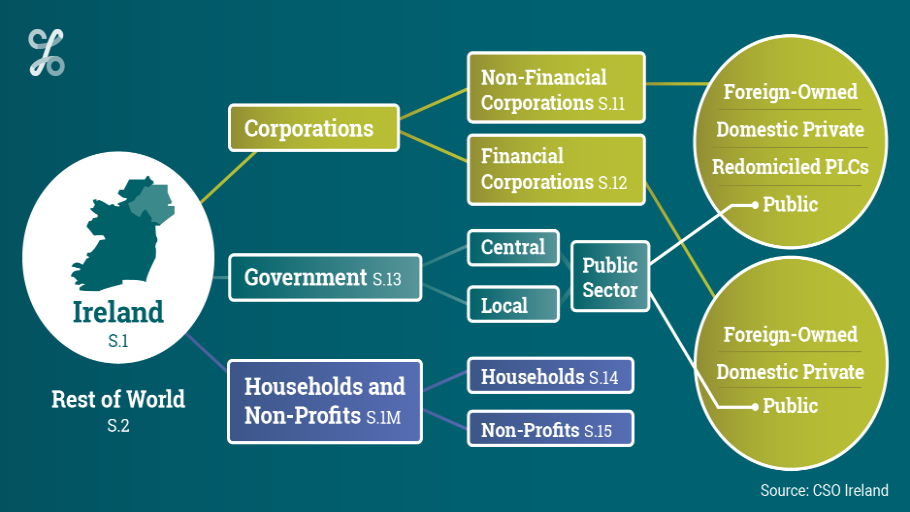Your feedback can help us improve and enhance our services to the public. Tell us what matters to you in our online Customer Satisfaction Survey.
General Government is an Institutional Sector made up of Central Government (the Taoiseach, his department and all other government departments) and Local Government (such as Sligo County Council). It also includes all the Bodies financed and controlled by Central or Local Government, including Extra-Budgetary Funds.
Most government activity is providing services to the country. Some of these are received by individuals (such as education or hospital care) and some are provided to the country collectively (such as the Defence Forces protecting the country). The cost of providing these services (Government Final Consumption) is added to Gross Domestic Product when calculating GDP by the Expenditure Method. As well as services, Government also provides benefits in cash (such as Child Benefit), Subsidies and grants.
Government is mostly funded by Taxes and other compulsory payments like Pay Related Social Insurance (PRSI). It also receives some payments for goods and services it provides, for example, hospital charges, or passport fees.
There are hundreds of bodies which are classified as Government institutions but are outside Central Government departments and Local Government. For these to be considered part of the Government sector there are two conditions: they must be controlled by government and they must also be non-commercial.
Bodies are controlled by Government when the government owns them, or appoints their leaders (key members of the board). Bodies are also considered to be controlled by Government if the Government is their dominant customer; that is, if more than half their income is from Government.
A body is non-commercial bodies if it does not charge prices that cover its costs, and it does not compete with commercial bodies to get Government contracts. These entities get less than half their production costs from sales of their goods and services; the rest they get from Government. The body would have to be consistently reliant on government to be considered non-commercial (assessed over a three year period).
For example, Teagasc, the agriculture and food development authority, is a Government body because it is controlled by government (the Minister for Agriculture appoints its board) and it is also funded almost entirely by Central Government. On the other hand, the Electricity Supply Board (ESB) is not in Government, even though the government owns a majority of the company, because it is a commercial body that charges market prices for its services. The ESB is a Non-Financial Corporation in government control.
Government is part of the wider Public Sector, which also includes the publically owned Financial and Non-Financial Corporations. A full list of Public Sector bodies can be found in the Register of Public Sector Bodies.
